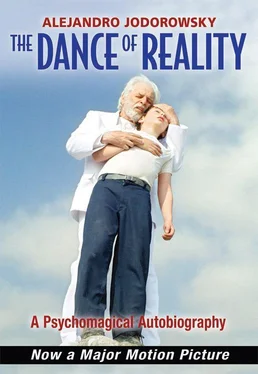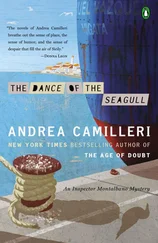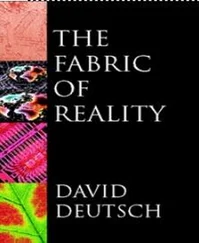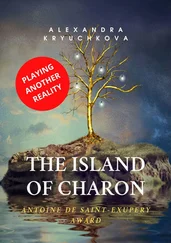Whether or not to wake up within a dream becomes a secondary consideration. One reaches a level of consciousness where one knows that one is dreaming in all the dreams that occur. The dream images are experiences that transform us just like events in real life. Indeed, sleep and wakefulness go hand in hand so much that when speaking of them we refer to a single world. One stops searching for detachment, for lucidity, and humbly accepts the blessing. Lucid dreams become happy dreams. But this cannot be achieved all at once; one must pass through different stages. In my case, once I stopped playing the magician and had tamed my nightmares, turning every menace into an ally, into a gift, into positive energy, I began to dream of transforming myself into my own therapist. I healed emotional wounds and alleviated deficiencies. For example:
I am lying naked in my bedroom, just as it is in reality: a room with white walls and curtains. A bed made of boards, a hard mattress, a bedside table, a chair, and a small wardrobe, nothing more. No decorations. My father appears, the same age as me. He is on his bicycle, with a box full of merchandise on the rear fender: women’s underwear, ties, trinkets. He is dressed in a suit copied from a photograph of Stalin. He asks me, with an intense expression of surprise, what I am doing here. I reply, “I am your son, you’re not in Matucana. Now you live in my level of consciousness. Leave that bike behind; you’re not a merchant, you’re a human being. Forget your communist uniform and recognize that you’re worshiping a false hero.”
As I speak, the bicycle disappears, as does his suit. He is naked. I approach him with open arms. He draws back in fear or disgust.
“Calm down, stop being ashamed of your penis. I’ve known it’s small for ages; it doesn’t matter. Filial love exists, and so does paternal love. You were so afraid of turning out gay like your brother you eliminated all physical contact between us. Men don’t touch each other, you said. And throughout my childhood, you never gave me a hug, never kissed me. You made me fear you, nothing more. At the slightest fault, you hit me or yelled at me in rage. It is a mistake to build paternity on a foundation of fear. I want love, not terror, to be what binds me to you. I was a victim as a child, but now that I’m grown I will hold you in my arms and you’ll do the same.” And without fear, I take him in my arms, kiss him, and then rock him like a toddler. And as he quiets down, I feel the surprising strength of his back.
Now he is a hundred years old, and so am I! We are two old men, tough, full of energy. “Love extends life, my father!” I still rock him, boldly, tenderly. “Because you never communicated with me through touch, I also refused all physical contact with my son, Axel Cristóbal.” And now my son appears, the same age as I am in the dream, twenty-six years old. I caress him with great tenderness and ask him to cradle me as I have just cradled my father. He takes me in his arms, weeping with happiness, as do I.
Then I woke up. My son telephoned me and suggested that we have breakfast together. I told him to come and see me. As soon as I opened the door, I embraced him. He was not surprised and returned equal affection, as if we had communicated physically all his life. I explained the dream and asked him if he felt that he could give nurture as well as receiving it.
“Hold me like a child and rock me, whispering a lullaby.”
At first Cristóbal did so timidly, but little by little, he was touched, and we established a contact in which filial and paternal love intermingled indivisibly. Finally, there is prosperity and peace in our relationship.
Naturally, without intending to, I transitioned from these dreams in which I healed myself to some in which I cared for others:
I am flying over the Champs-Élysées Avenue in Paris. Below me, thousands of people are marching, demanding world peace. They carry a cardboard dove a kilometer long with its wings and chest stained with blood. I begin to circle around them to get their attention. The people, astonished, point up at me, seeing me levitate. Then I ask them to join hands and form a chain so that they can fly with me. I gently take one hand and lift. The others, still holding hands, also rise up. I fly through the air, drawing beautiful figures with this human chain. The cardboard dove follows us. Its bloodstains have vanished. I wake up with the feeling of peace and joy that comes from good dreams.
Three days later, while walking with my children along the Champs-Élysées Avenue, I saw an elderly gentleman under the trees near the obelisk whose entire body was covered by sparrows. He was sitting completely still on one of the metal benches put there by the city council with his hand outstretched, holding out a piece of cake. There were birds flitting around tearing off crumbs while others waited their turn, lovingly perched on his head, his shoulders, his legs. There were hundreds of birds. I was surprised to see tourists passing by without paying much attention to what I considered a miracle. Unable to contain my curiosity, I approached the old man. As soon as I got within a couple of meters of him, all the sparrows flew away to take refuge in the tree branches.
“Excuse me,” I said, “how does this happen?”
The gentleman answered me amiably.
“I come here every year at this time of the season. The birds know me. They pass on the memory of my person through their generations. I make the cake that I offer. I know what they like and what ingredients to use. The arm and hand must be still and the wrist tilted so that they can clearly see the food. And then, when they come, stop thinking and love them very much. Would you like to try?”
I asked my children to sit and wait on a nearby bench. I took the piece of cake, reached my hand out, and stood still. No sparrow dared approach. The kind old man stood beside me and took my hand. Immediately, some of the birds came and landed on my head, shoulders, and arm, while others pecked at the treat. The gentleman let go of me. Immediately the birds fled. He took my hand and asked me to take my son’s hand, and he another hand, so that my children formed a chain. We did. The birds returned and perched fearlessly on our bodies. Every time the old man let go of us, the sparrows fled. I realized that for the birds when their benefactor, full of goodness, took us by the hand, we became part of him. When he let go of us, we went back to being ourselves, frightening humans. I did not want to disrupt the work of this saintly man any longer. I offered him money. He absolutely would not accept. I never saw him again. Thanks to him, I understood certain passages of the Gospels: Jesus blesses children without uttering any prayer, just by putting his hands on them (Matthew 19:13–15). In Mark 16:18, the Messiah commands his apostles, “They shall lay hands on the sick, and they shall recover.” St. John the Apostle says mysteriously in his first epistle, 1.1, “That which was from the beginning, which we have heard, which we have seen with our eyes, which we have looked upon, and our hands have handled, of the Word of life.”
There was an amazing coincidence between my lucid dreams and the bird man. In a certain way, the same laws operate in the waking world as in the world of dreams. Someone who has achieved conscious detachment through humility and love in order to be useful to others, communicating his level to them, must not only unite with them spiritually but also physically. The soul can be transmitted through physical contact. This was the beginning of the development of what I later called “initiatory massage.” I told myself, the method by which Jesus touched the children, placing his hands on them and conveying his doctrine without saying a word, was not the method of a doctor. The doctor listens to a biological machine and discovers an illness there; this is not a communication from soul to soul but from body to body. Nor did Jesus act as a soldier, a guard, a warrior, or a master, people who command our bodies by imposing their rules, beating us, terrorizing us, humiliating us, and limiting our freedom. Nor did he act as a seducer, giving the body a purely sexual or emotional significance. He considered those things secondary and made his hands the continuation of his spirit; he transmitted consciousness through physical contact. Was this possible? To do this, he had to defeat the intellectual center that brings about the doctor’s attitude, the sexual center that produces lasciviousness, and the physical center with its animal nature engendering abuses of power.
Читать дальше












